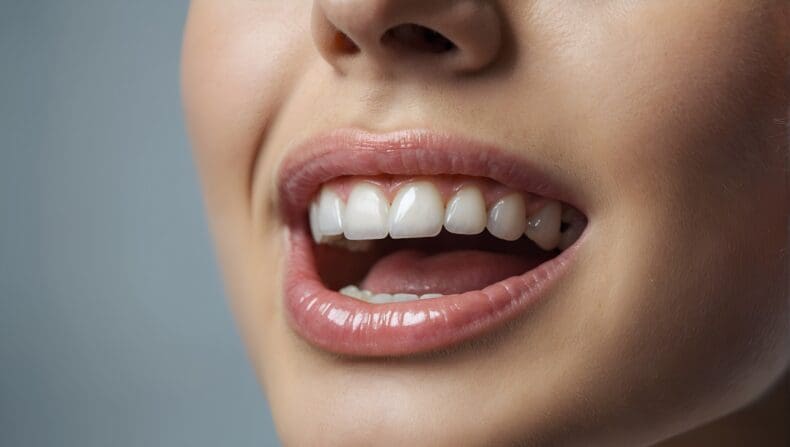Dental crowns play a crucial role in restorative dentistry, offering a solution for damaged, decayed, or weakened teeth. A dental crown, also known as a cap, covers the entire visible portion of a tooth, restoring its shape, size, strength, and appearance. In this comprehensive guide, we will explore the benefits of dental crowns, the types available, and the process of getting a crown.
What Are Dental Crowns?
A dental crown is a custom-made cap that fits over a damaged or decayed tooth, providing protection and restoring its function. Crowns are typically made from materials such as porcelain, ceramic, metal, or a combination of these materials.
Benefits of Dental Crowns
- Restored Function: Dental crowns restore the function of damaged teeth, allowing you to bite, chew, and speak normally.
- Enhanced Appearance: Crowns can improve the appearance of teeth that are discolored, misshapen, or otherwise aesthetically compromised.
- Protection and Strength: Crowns protect weakened teeth from further damage and provide added strength to prevent fractures.
- Long-Lasting Solution: With proper care, dental crowns can last for many years, providing a durable and long-lasting solution for tooth restoration.
- Comfort and Fit: Custom-made crowns are designed to fit comfortably over your tooth, providing a secure and stable restoration.
Types of Dental Crowns
There are several types of dental crowns, each made from different materials. The choice of material depends on factors such as the location of the tooth, the patient’s aesthetic preferences, and the dentist’s recommendation. Here are the most common types of dental crowns:
- Porcelain Crowns: Porcelain crowns are known for their natural appearance and are often used for front teeth. They are made from high-quality dental ceramic that closely mimics the color and translucency of natural teeth.
- Porcelain-Fused-to-Metal (PFM) Crowns: PFM crowns combine the strength of a metal core with the natural appearance of a porcelain exterior. These crowns provide excellent durability and aesthetics.
- Metal Crowns: Metal crowns are made from alloys of gold, platinum, or base metals such as nickel or chromium. They are known for their exceptional strength and durability, making them ideal for molars.
- Zirconia Crowns: Zirconia crowns are made from a strong and durable ceramic material called zirconium oxide. These crowns offer a combination of strength and aesthetics.
- Composite Resin Crowns: Composite resin crowns are made from a tooth-colored material that is bonded to the tooth. They are more affordable and can be used for temporary restorations.
The Dental Crown Process
The process of getting a dental crown typically involves two visits to the dentist. Here is an overview of the steps involved:
- Initial Consultation: During the initial consultation, your dentist will evaluate your oral health, take X-rays, and determine if a dental crown is the appropriate treatment for your condition.
- Tooth Preparation: During the first visit, your dentist will prepare the affected tooth by removing any decayed or damaged areas and reshaping the tooth to accommodate the crown.
- Impressions: After the tooth is prepared, your dentist will take impressions of your teeth. These impressions will be used to create a custom-made crown that fits perfectly over your tooth.
- Temporary Crown: While your permanent crown is being made, your dentist will place a temporary crown over the prepared tooth to protect it.
- Permanent Crown Placement: Once your permanent crown is ready, you will return to the dentist for the final placement. Your dentist will remove the temporary crown, check the fit and appearance of the permanent crown, and make any necessary adjustments before bonding it to your tooth.
Caring for Your Dental Crown
Proper care and maintenance are essential to ensure the longevity and success of your dental crown. Here are some tips for caring for your crown:
- Good Oral Hygiene: Brush your teeth at least twice a day with fluoride toothpaste and floss daily to remove plaque and food particles. Pay special attention to the area around the crown.
- Avoid Hard Foods: Avoid chewing on hard foods and objects, such as ice and hard candy, to prevent damage to the crown.
- Regular Dental Check-Ups: Schedule regular dental check-ups and cleanings with your dentist to monitor the health of your crown and surrounding teeth.
- Address Dental Issues Promptly: If you experience any issues with your crown, such as looseness, discomfort, or sensitivity, contact your dentist promptly for evaluation and treatment.
Conclusion
Dental crowns are a versatile and effective solution for restoring and protecting damaged teeth. With their ability to enhance appearance, restore function, and provide long-lasting durability, dental crowns are an excellent choice for patients seeking a comprehensive restorative treatment. By understanding the different types of crowns, the process of getting a crown, and the benefits of this treatment, you can make an informed decision about your dental care. Consult with your dentist to determine if a dental crown is the right option for you and take the first step toward achieving a healthy and beautiful smile.

